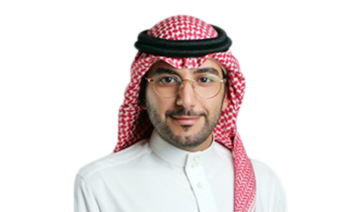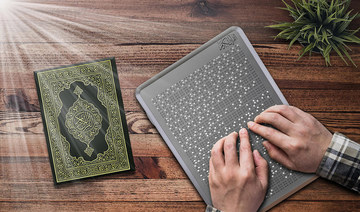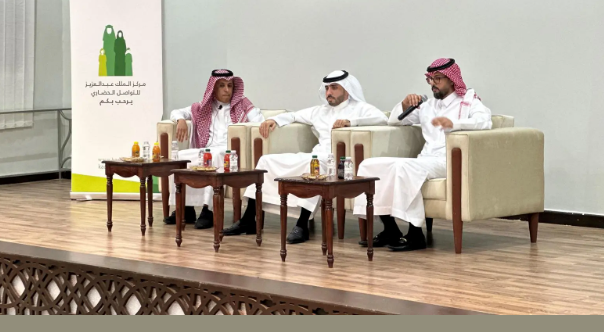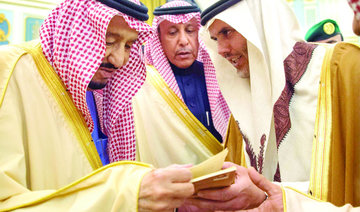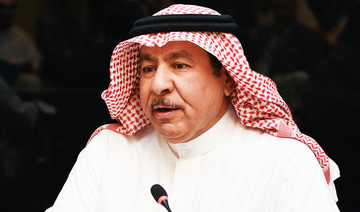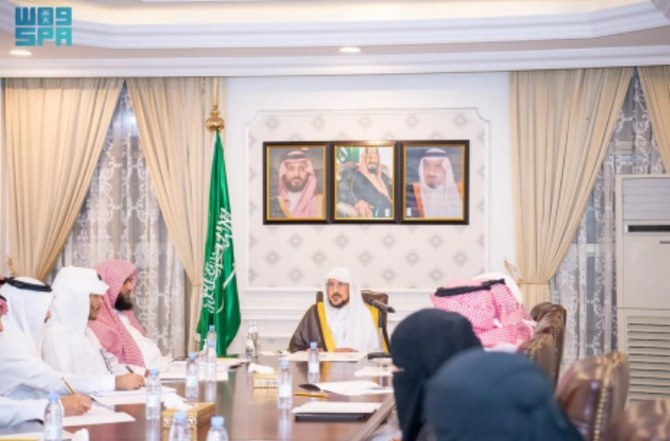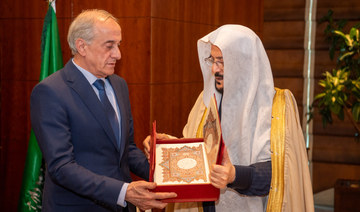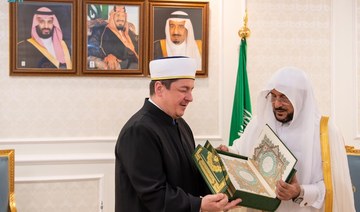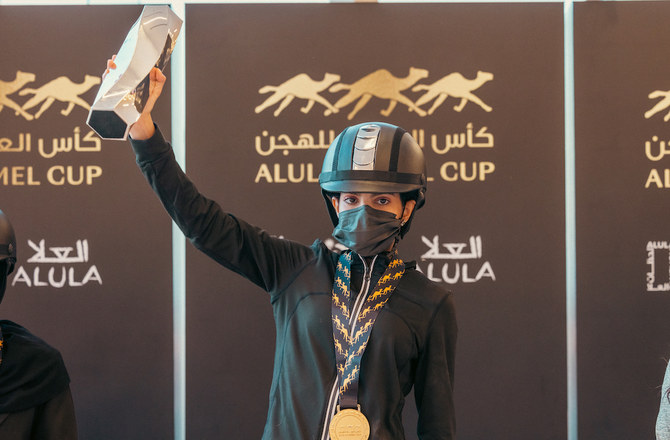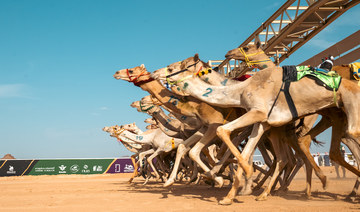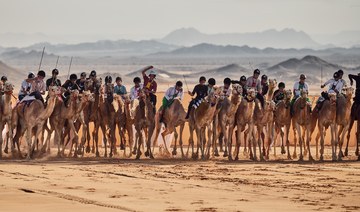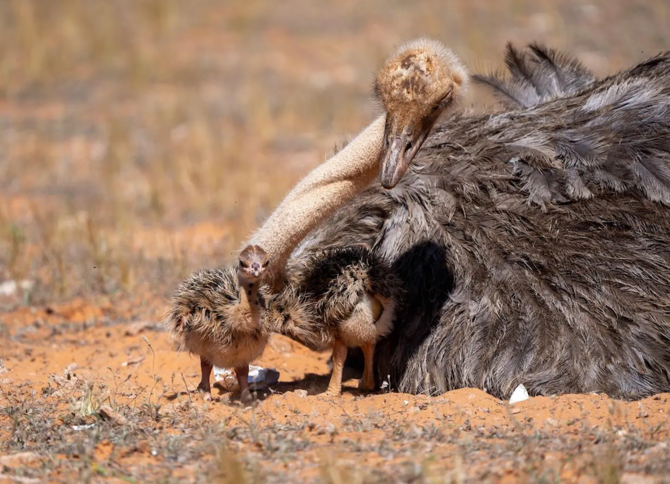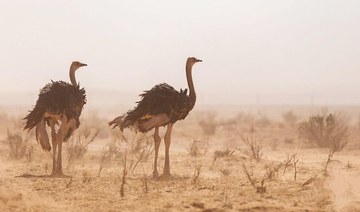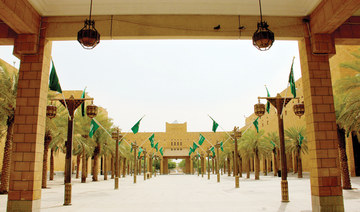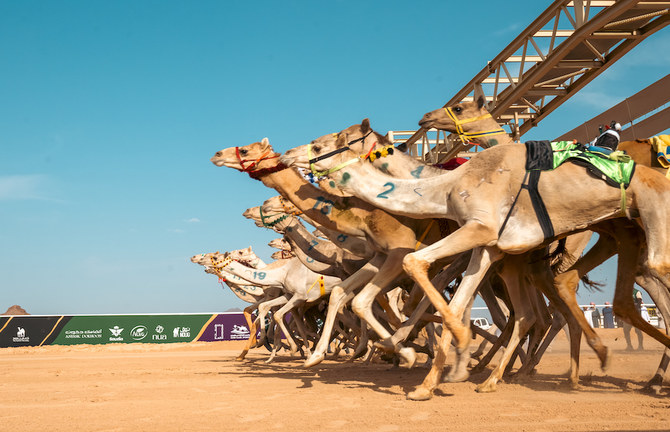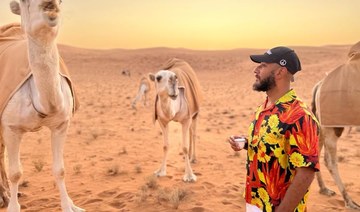LONDON: Saudi inventor and tech innovator Hadeel Ayoub is giving people who can’t speak new hope — and a new voice.
The founder of London-based tech company BrightSign is the driving force behind a smart glove that allows individuals who are unable to speak to communicate by translating sign language into text and speech.
After more than four years’ work, Ayoub, a designer, programmer and researcher in human computer interaction, plans to launch the device later this year.
Some of the biggest beneficiaries will be families with children who have speech disabilities and want to be better connected through technology. The BrightSign glove will enable these children to become better signers and communicators, but can also be hooked up with a web app to provide instant translation in most languages.
The architecture of a BrightSign glove is relatively straightforward: Multiple sensors, embedded under an outer glove, track finger positions, hand orientation and dynamic movements. The hardware is contained inside a slender wristband.
Hand gestures are translated into text that appears on a screen embedded in the glove, and speech is made audible via a mini-speaker. The user can select the voice and speech language.
BIO
• Founder and Chief Technology Officer, BrightSign
• Experienced lecturer, researcher and entrepreneur with experience in the higher education industry
• Skilled in innovation, creative coding, programming and design research
• Ph.D. in human-computer interaction and gesture recognition from Goldsmiths, University of London
Ayoub has been featured in Forbes magazine, tech programs on the BBC and Discovery channels, and has spoken at discussions organized by Britain’s Financial Times and Guardian newspapers. She has also taken part in a number of exhibitions with innovation and assistive technology as their themes.
Recalling the inspiration for the smart glove, the Saudi inventor said she was originally designing a device for an air-draw program — the air was the canvas, and the hands and fingers were the drawing tools. Her aim was to replace the mouse and keyboard with trackable wearable technology.
On the basis of her design, Ayoub was selected to represent her university at an IBM global hackathon in artificial intelligence for social care. She reprogrammed the glove to translate sign language and won the competition.
When news of the smart glove was circulated in the media, Ayoub’s inbox was flooded with inquiriesttt from parents wanting the glove for their children, from speech therapists for their patients, and from teachers for their students.
The tech innovator quickly realized there was a need for this kind of technology and decided to make it the focus of her Ph.D. research.

Hadeel Ayoub’s BrightSign smart glove allows people with speech disabilities to translate sign language into text and voice. (Reuters)
“I want to break the current barriers facing those who wish to broaden their experience with sign language beyond the current traditional method,” Ayoub said.
She believes that at least three improvements are urgently needed: Integrating children with disabilities into mainstream classrooms; equipping adults who have disabilities with technologies that will help them perform tasks as well as their peers manage; and making smart-glove devices available in public locations such as airports, shopping malls, government offices and hospitals to offer a smoother service to visitors with disabilities.
A global award winner for her technological innovation, Ayoub regularly tests and improves the BrightSign glove, which she describes as a work in progress.
“The glove has gone through multiple rounds of prototyping and testing. I have implanted the users’ feedback to develop hardware, software and design,” she said.
“It is now being used in six schools to help non-verbal children overcome their communication challenges in the classroom.”
Ayoub said that further studies would help her develop the final product. “I am now taking glove pre-orders on the BrightSign website,” she said.
The Saudi inventor said that she has always been “a progressive thinker and a dreamer of possibilities,” and described a childhood spent immersed in books rather than playing with dolls.
She remembers her family library with fondness and reminisces on quiet evenings spend reading.
As well as being an innovator, Ayoub is a mother who talks lovingly about her children.
“They are very much involved in the development phases of BrightSign,” she said. “I consider their opinions on the products designed for children. I always encourage them to do what they love since that would mean that they will excel in it.
“They get excited every time they see someone using BrightSign and they can see how it helps people live better.
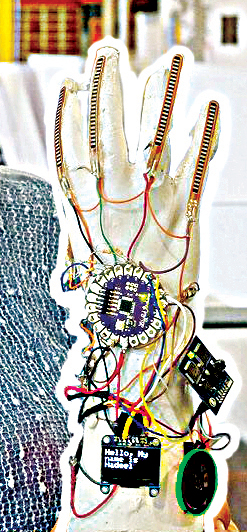 “They also understand the concept of tech for good and aspire to work one day on technologies with a social impact.”
“They also understand the concept of tech for good and aspire to work one day on technologies with a social impact.”
Ayoub sees herself as problem solver with an eye for technical detail, a kind of instinctive trouble-shooter. “When I attempt to solve a problem, I go through cycles of trial and error until I achieve a breakthrough,” she said.
“I encountered a number of problems that were unprecedented, so I wasn’t able to turn to a source or a reference. I guess this is what prompted me to get creative and think outside the box, which eventually put me on the innovation route.
“I find dead ends challenging. When someone tells me that something has never been done, it does not mean that it is not doable. On the contrary, it motivates me to keep going until I find a solution.”
As for the current model of innovation, Ayoub admires the global interconnectedness.
“The mindset now is collaborative rather than competitive,” Ayoub said.
“I am part of inventors’ groups in Saudi Arabia, the Gulf region and the Middle East. Most of us got business training at some point in order to secure investment and go into production.”
I find dead ends challenging. It motivates me to keep going to find a solution.
Hadeel Ayoub
Being a innovator has been far from a walk in the park for Ayoub. She believes what really pushed her in her chosen field was her desire to learn something new in every degree she pursued, starting with design, then programming and, finally, technology.
“More often than not I find myself the only woman speaking at a tech conference or giving a tech talk at an event,” she said. “I am proud to represent my country in global exhibitions and am even prouder when I walk away with awards at competitions.
“I hope that I can inspire young girls to experiment with technology and use it to enhance their respective practices.
“I have created a ‘women in tech’ group where we have regular meetings to share our challenges and extend our support each other.”
Based on her experiences, Ayoub has a message for young Saudis: “This is the age of innovation and entrepreneurship. If what you are passionate about doesn’t exist as a field of knowledge, create it.
“Learn how to code. It will be useful in any career you pursue and will enable you to integrate technology into your practice.”





